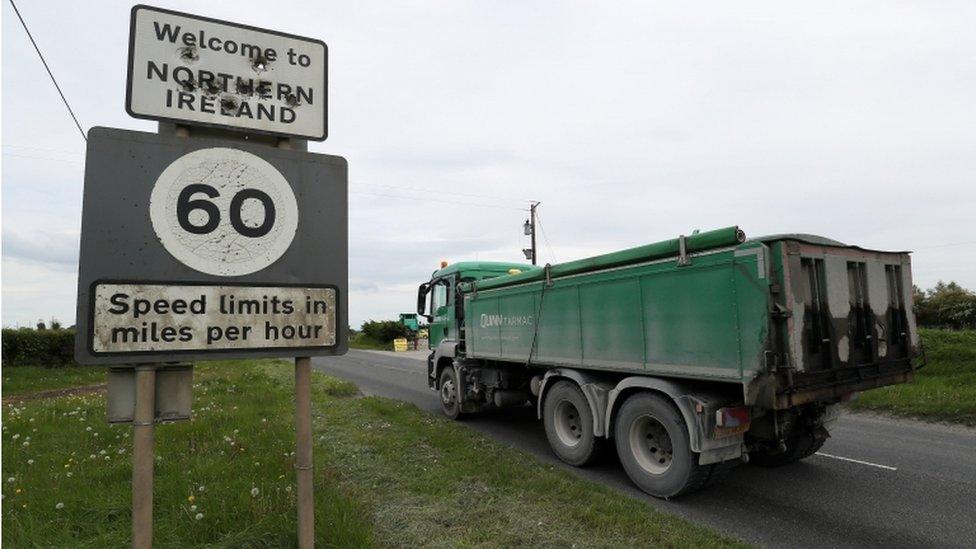Government faces no-deal backlash from its business experts
- Published
- comments
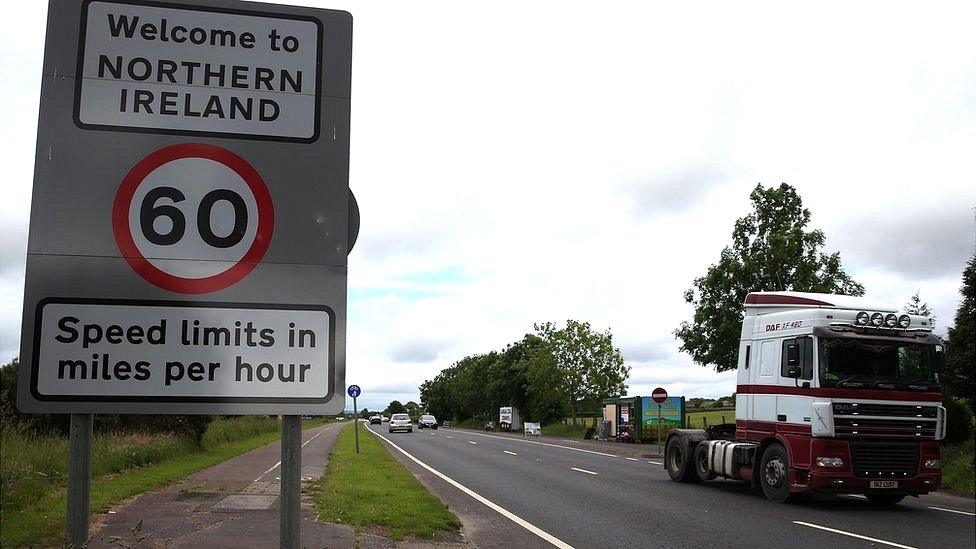
The government's attempts to find a technological solution to its Irish border Brexit problem have run into immediate difficulties with its own business advisers.
The BBC has obtained internal documents, including the terms of reference which some of its business experts are refusing to sign off on.
They are concerned the terms could be used to endorse a plan of action in the event of a no-deal Brexit.
They are now asking for alterations.
The Business and Trade Union Alternative Arrangements Advisory Group - mostly made up of Northern Ireland business leaders, external - is one of three committees recently appointed by the government to come up with and test ideas for "alternative arrangements" to the so-called backstop.
They have been appointed by the Department for Exiting the European Union to advise on the feasibility of new technologies that could maintain the current free flowing Irish border after Brexit occurs.
The document says that the "purpose and objective" of the group is that "alternative arrangements should be considered without prejudice to the UK's future customs and regulatory relationship with the EU".
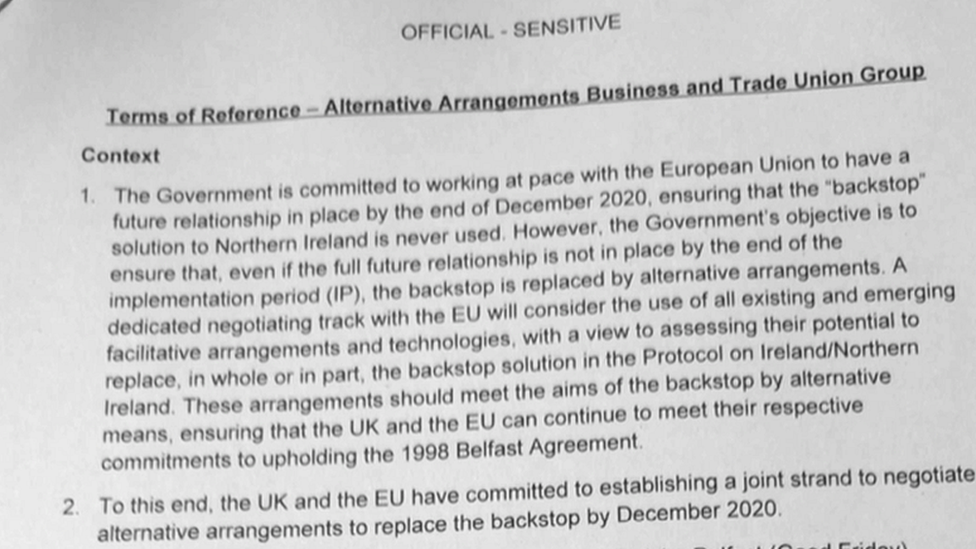
At a meeting, members of the committee asked ministers who were present to alter that objective to ensure their conclusions could not be used to endorse a no-deal Brexit.
The document also ruled that the likely response of the Irish government and the European Union to new technological ideas were "out of scope".
"The focus of discussions should not be on the negotiability of proposals," the document says.
Some participants at the meeting expressed concerns that there was no concrete commitment in the internal document to abide by the Joint Report - the 2017 agreement by the UK government and EU to avoid a hard border "including any physical infrastructure or related checks and controls".
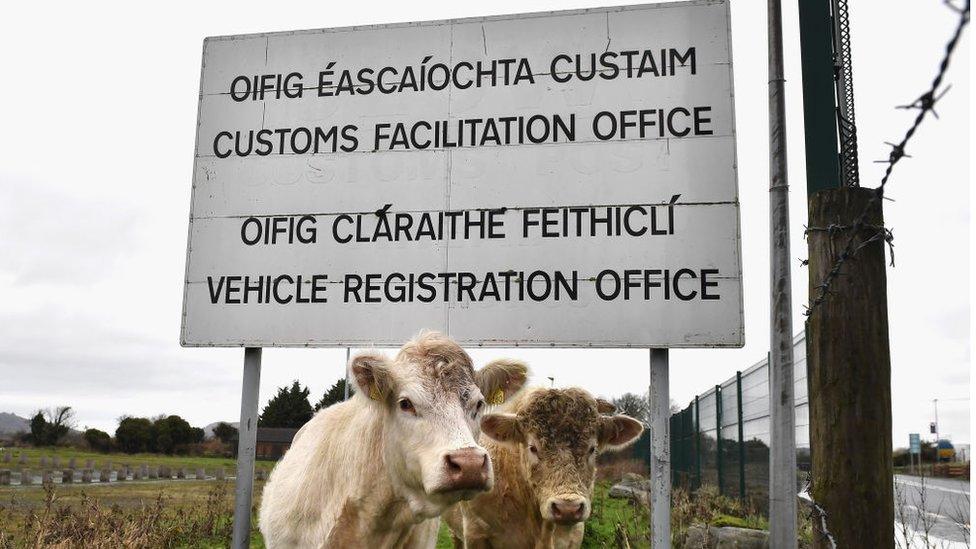
Some dairy farmers are concerned they will have to cull their herds
The Joint Report is not mentioned directly in the terms of reference nor in the background context paper prepared for all three advisory groups on alternative arrangements.
It is only referred to in an accompanying presentation, also seen by BBC News, that says the need to comply with international obligations and commitments "includes considering the Belfast (Good Friday) Agreement and the 2017 Joint Report".
A source present at the meeting said that a number of concerns about the government approach to Northern Ireland were articulated at the meeting, including dairy farmers who process over a third of their milk across the border, warning that their herds would have to be culled.
A government spokesperson said: 'We do not recognise this account of what have been a very constructive set of meetings with business leaders and technical experts.
"As is normal in a first meeting of advisory groups, some general comments were provided on our terms of reference, which we are finalising at present."
However, both Conservative leadership candidates, Boris Johnson and Jeremy Hunt, say they plan to use technology to replace the backstop - an insurance policy that dealt with the Irish border by assuming a period of UK alignment with Europe on most customs and regulations issues, even after Brexit.
The Irish government and the EU have indicated openness to talk about technological solution, but expressed doubts that they will exist for many years, insisting that the backstop must be part of a negotiated EU exit.
- Published9 July 2019
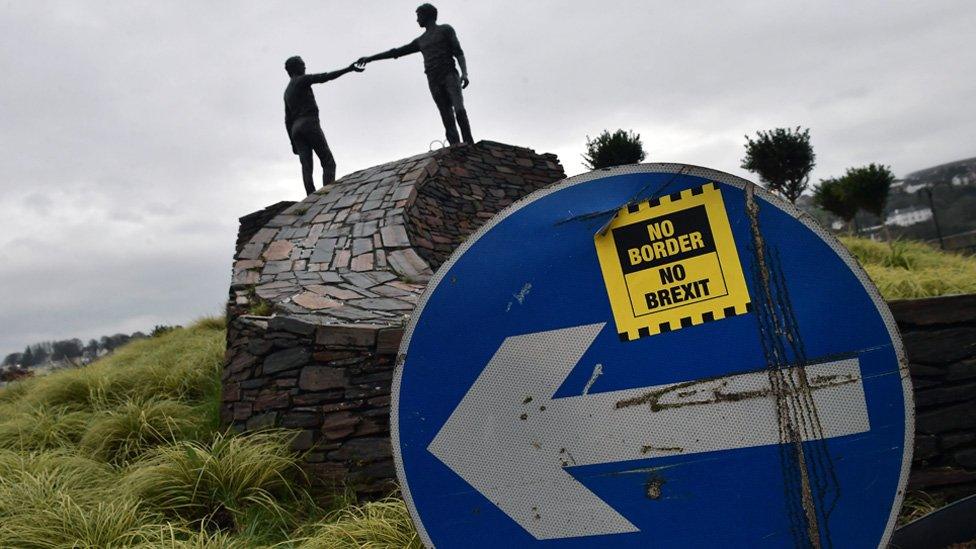
- Published7 July 2019
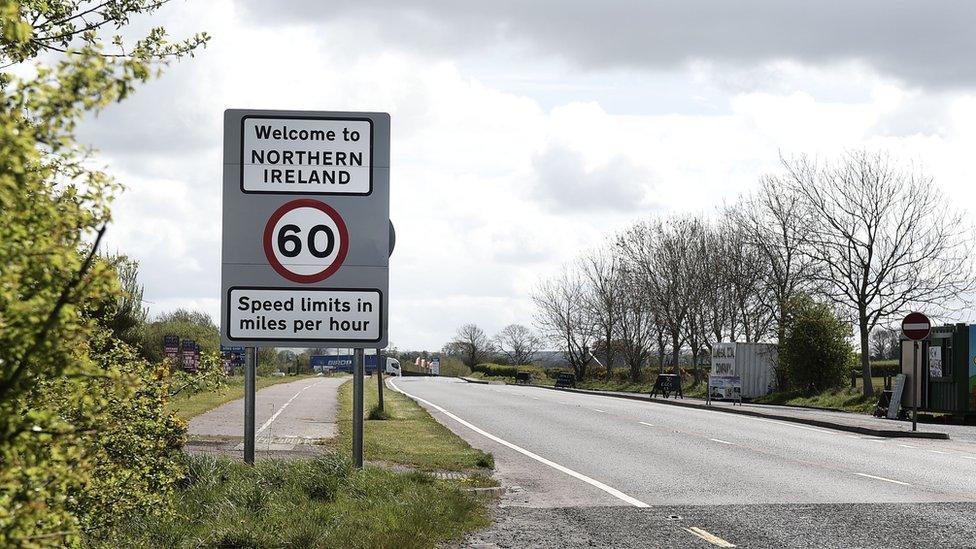
- Published26 June 2019
